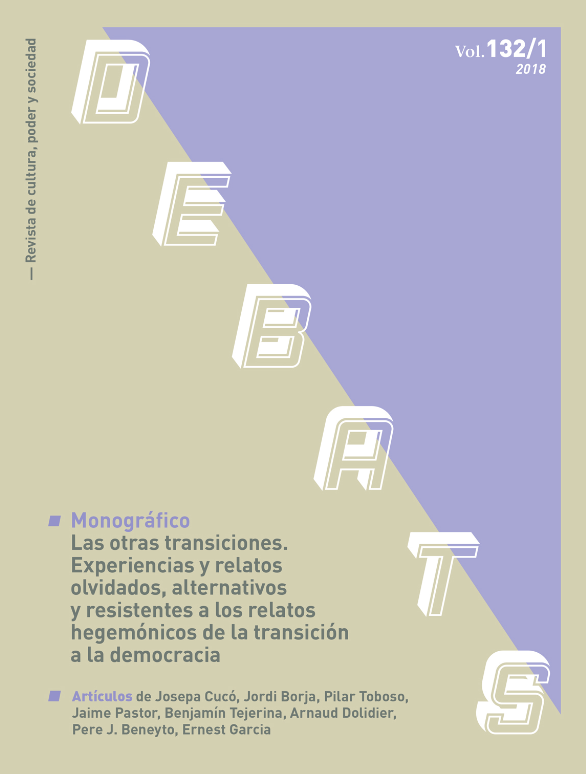Worker mobilisation during the Spanish transitional democratic process: discourses and representations about the assembly (1976–1978)
Keywords:
cultura democrática, Transición, movilizaciones obreras, asambleas obrerasAbstract
The following work analyses trade union and journalistic discourses on the role played by worker’s assemblies during the Spanish transitional process with the aim of understanding how their mobilisation was subjugated and subordinated by political organisations and trade unions who were in opposition to democratisation. The worker’s assemblies were not anecdotal events, and the marginalisation
of their meetings was partly the consequence of public discourses that delegitimised them. Moreover, these discourses contributed to the construction of a specific political culture which rejects worker ‘radicalism’. Thus, workers were asked to reject their own democratic structures and accept the monopoly of social representation by the trade unions.
Downloads
Downloads
Published
How to Cite
Issue
Section
License
Without prejudice to the provisions of article 52 of Spanish Law 22/1987 of November 11 on Intellectual Property, BOE (official state bulletin) of November 17, 1987, and pursuant to said legislation, the author(s) surrender(s) free of charge its rights of edition, publication, distribution and sale of the article, for its publication in Debats. Journal on Culture, Power and Society.
Debats. Journal on Culture, Power and Society is published under the Creative Commons license system in accordance with the «Recognition - Non-Commercial (by-nc) modality: The generation of derivative works is permitted provided that commercial use is not made. Nor can the original work be used for commercial purposes».
Thus, when the author submits his/her contribution, he/she explicitly accepts this assignment of publishing and publishing rights. Authors also authorize Debats. Journal on Culture, Power and Society to include their work in an issue of the journal to be distributed and sold.











